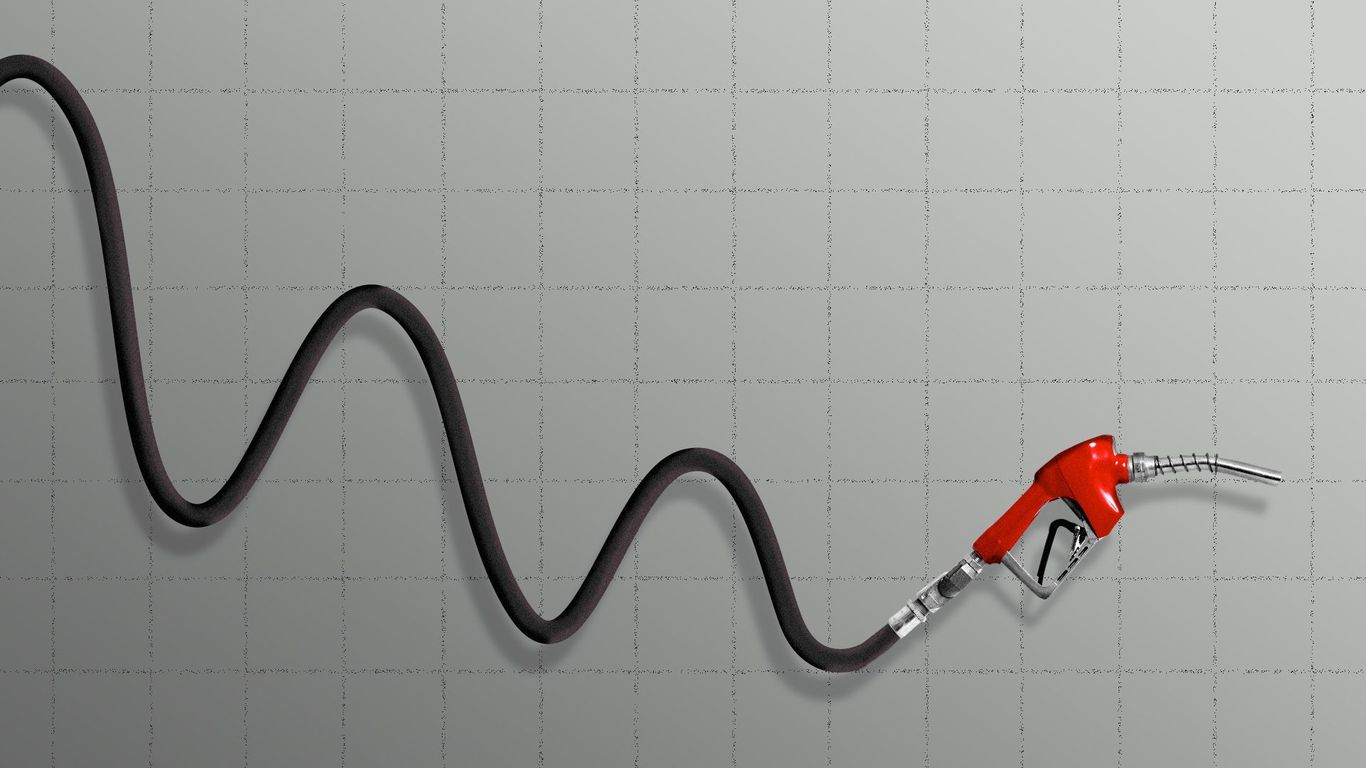The decline of ExxonMobil has been remarkable in its magnitude and unexpectedness.
Why it matters: While all major oil companies are facing troubles, Exxon has fallen the farthest, in large part because it has made the biggest bets on oil and gas — and the smallest bets on renewable energy.
- While rival BP has recently promised to get to zero net emissions by 2050, Exxon has been doubling down on fossil fuels with moves like a spectacularly ill-timed $41 billion acquisition of XTO energy in 2009 and its major expansion in the Permian Basin in 2017.
Driving the news: Exxon reported a loss of $680 million in the third quarter of this year, bringing its losses for 2020 as a whole up to $2.37 billion. (In 2008, by contrast, it made a profit of $46 billion.)
- The company also announced it would shed up to 15% of its workforce over the next two years, including roughly 1,900 U.S. layoffs, mostly at its Houston HQ.
- By the numbers: Exxon and Mobil combined had 390,000 employees in 1980. By 2017, that number had shrunk to less than 70,000.
Losses and layoffs notwithstanding, Exxon is still spending roughly $15 billion on sending a $3.48-per-share dividend to shareholders this year.
- Few if any analysts believe such a payout is sustainable. “We have doubts about the sanctity of the dividend longer-term,” Edward Jones analyst Jennifer Rowland told Reuters.
Flashback: The oil giant was the largest company in the world, measured by market value, as recently as 2013.
- A 700-page corporate biography by Columbia University journalism dean Steve Coll was entitled “Private Empire” and compared the company’s power and reach to that of the United States itself.
- When CEO Rex Tillerson became U.S. Secretary of State in 2017, it was not obvious that he was gaining power or influence.
The big picture: Today, ExxonMobil is not even in the top 40 most valuable companies in America. It’s losing money, cutting staff, and stretching to maintain an unsustainable dividend.
- The oil giant’s market capitalization of $137 billion makes it smaller than Zoom ($139 billion), and only about a third of the size of electricity-powered Tesla ($385 billion).
- NextEra Energy, a power company with huge renewables assets, is also worth more than ExxonMobil.
- The most valuable company, Apple, is worth roughly 14 ExxonMobils.
Exxon has lost 54% of its value this year alone. That’s some $163 billion. By contrast, Chevron is down 42%, or $95 billion, while NextEra is up 23%, or $26 billion.
My thought bubble: A decade ago, ExxonMobil was making strategic decisions on a timescale of 50 years or more. Today, it has been reduced to desperate short-term attempts to prop up the share price by paying a multi-billion-dollar dividend even when it’s losing money.
- Analysts aren’t convinced that tactic is working. “Every time you pay a dividend you can’t afford,” said Doug Leggate, Merrill Lynch’s head of U.S. oil and gas, on Friday’s earnings call, “your share price is going down.”
The bottom line: As King George III so memorably put it in the musical Hamilton, “Oceans rise, empires fall.”
- ExxonMobil might be the first empire to fall as a result of global climate change. It won’t be the last.
